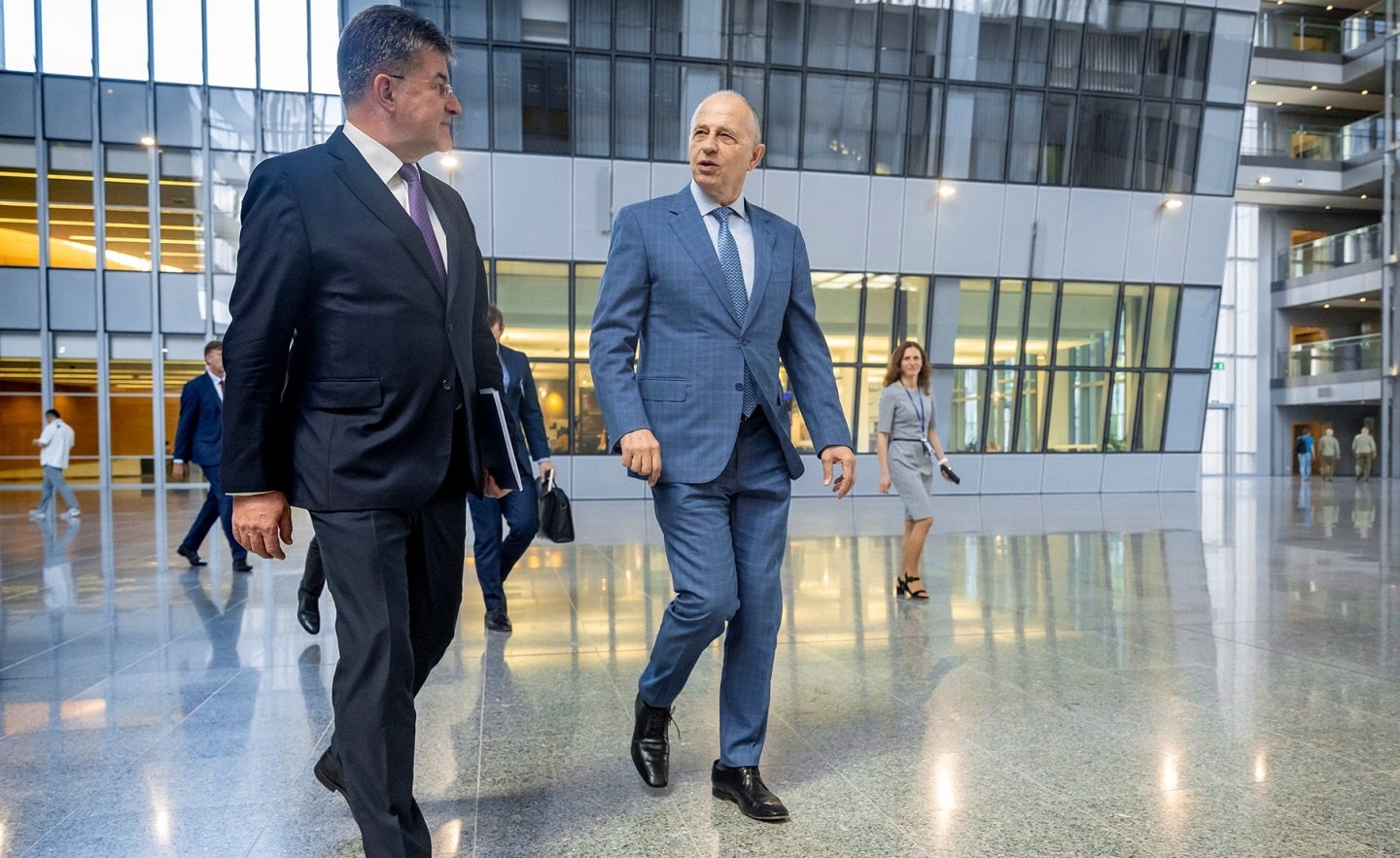
Nato Deputy Secretary General Mircea Geoană met with Ambassador Miroslav Lajcak, EU Special Representative for the Belgrade-Pristina Dialogue and other Western Balkans issues, who recently visited Belgrade and Pristina.
Ambassador Lajcak briefed the North Atlantic Council on recent developments in northern Kosovo and the EU’s current diplomatic efforts on 13 June.
Tensions have risen in recent months as Serbia refuses to recognise Kosovan sovereignty. For over two decades, Nato has been spearheading a peacekeeping mission in Kosovo, as part of an international effort to establish lasting peace and security in the area, called the Kosovo Force, or “KFOR”.
KFOR’s mission in Kosovo – now supported by 4,200 troops from 27 Nato members – is to ensure the safety and freedom of movement of all the communities residing in the region.
The clashes, which occurred at the end of May, resulted in nearly 40 KFOR peacekeeping troops sustaining injuries. Nato issued a statement on 29 May condemning the attacks.
“The excellent, long-standing co-operation between Nato and the EU in the region continues to make a difference,” Geoană stated.
“Nato Headquarters, KFOR, allies as well as the European Union and the OSCE [Organisation for Security and Co-operation in Europe] have been tireless in their efforts to de-escalate the situation in northern Kosovo and bring both sides to the negotiation table, within the framework of the EU-led dialogue between Belgrade and Pristina.
“Nato has been committed to stability in the Western Balkans for decades; our KFOR mission on the ground, with well over 4,000 troops is the strongest demonstration of this commitment,” he added.
Nato and EU dialogue comes off the heels of the UK extending its commitment to KFOR until 2026 at least, as well as 500 additional KFOR troops being deployed to Kosovo from Turkey.
The Nato-led KFOR mission is taking all necessary actions to maintain a safe and secure environment and freedom of movement for all people living in Kosovo and continues to act impartially, in line with its UN mandate based on the United Nations Security Council Resolution 1244 of 1999.




